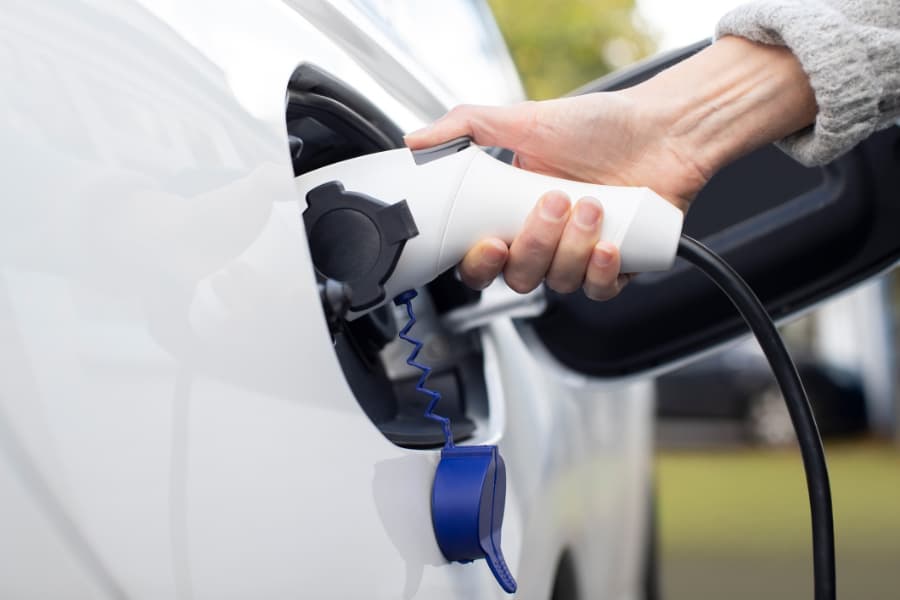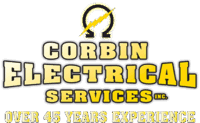 Installing an electric vehicle (EV) home charging station requires advanced knowledge of electrical systems and mechanical expertise. At Corbin Electrical Services, Inc., we have extensive experience installing EV charging stations. We even install dedicated generators for EV charging stations in case a home’s electrical system fails, so you’ll always have dependable transportation. Here, Corbin Electrical Services, Inc. offers information on what EV home chargers are and how to ensure EV owners have a safe, reliable way to get their cars energized and on the road.
Installing an electric vehicle (EV) home charging station requires advanced knowledge of electrical systems and mechanical expertise. At Corbin Electrical Services, Inc., we have extensive experience installing EV charging stations. We even install dedicated generators for EV charging stations in case a home’s electrical system fails, so you’ll always have dependable transportation. Here, Corbin Electrical Services, Inc. offers information on what EV home chargers are and how to ensure EV owners have a safe, reliable way to get their cars energized and on the road.
What Is an EV Home Charging Station?
An EV home charging station is an apparatus that transmits energy to the batteries of electric vehicles, such as electric or hybrid-powered cars and trucks. There are two different types of charging stations, including the following:
Level 1
Level 1 is a common charging device compatible to use with a standard household plug that supplies 110 or 120 volts per kilowatt hour. This charger has a three-pronged plug that connects to a control box. Another longer cord extends out the opposite end of the control box, directly into the car’s electrical port.
The advantage of the Level 1 system is that it requires no extra installation, utilizing a standard home outlet for energy. It should be noted that no heavy appliances should be used on the same circuit at the same time to minimize the risk of blowing a fuse. Additionally, a Level 1 charger can supply about three to five miles for each hour charged. That means it will take about 24 to 50 hours to fully charge a typical EV sedan.
Level 2
Level 2 chargers, on the other hand, offer a more complex system that can be difficult for a novice to install. However, its output can charge up to 25 vehicle miles per hour, reducing the charge time for many cars to about five or six hours. This benefit alone makes the professional installation of a Level 2 charger worth it.
Home Prep for an EV Charger
There are several steps to take to prepare to install a Level 2 electrical vehicle charger. They include:
Locating Power Panel Amps
The first and most critical step is to locate the power panel and determine its amp capacity. A home’s power panel typically supplies between 60 and 200 amps, depending on when the panel was installed though. Most new homes have a 200-amp service panel, while older homes will have a 100-amp panel.
Auditing Energy
Performing an energy audit is a very important step toward making sure you don’t overload the home’s electrical system by adding a Level 2 charger. Department of Energy offers a free self-directed home energy assessment with instructions. At any time, home energy consumption should not exceed 80% of the panel’s full capacity.
Installing Charger
Corbin Electrical Services, Inc. installs level-two EV charging stations. These chargers require a 240-volt power source. If your garage doesn’t have an adequate power source, you will need a dedicated circuit and a 240-volt outlet.
Other possible options for plugging in the charger are to find out if the garage has a 240-volt amp socket, often referred to as a dryer socket because it was built to handle large appliances. This will supply sufficient energy without blowing a fuse. Or, install a separate dedicated power system to manage the Level 2 charger’s energy flow to the vehicle.
Visit Corbin Electrical Services, Inc. for EV Charger Installations
Our team is proud to provide environmentally conscious drivers with the exceptional installation of EV home charging stations throughout New Jersey. Our expert technicians will analyze a home’s power panel to ensure your home remains safely powered whenever you’re charging your electric car. To learn more about our work, or to schedule an EV home charging station setup, contact us today.
Corbin Electrical Services, Inc. – “We Generate Peace of Mind”


